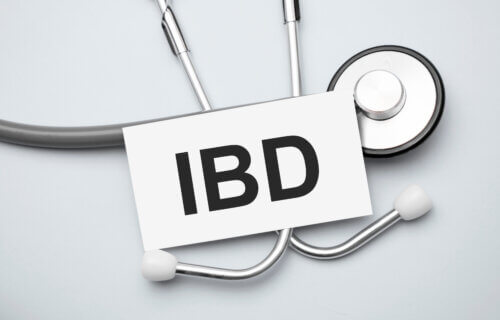MINNEAPOLIS – Individuals with inflammatory bowel disease (IBD) are at a higher risk of stroke, a new study warns. IBD, a debilitating condition, results in chronic inflammation of the intestines and includes illnesses such as Crohn’s disease, ulcerative colitis, and unclassified inflammatory bowel disease.
Researchers discovered that IBD sufferers were 13 percent more likely to experience a stroke up to 25 years post-diagnosis compared to those without the disease. However, the research team stressed that the study doesn’t establish a causal relationship between IBD and stroke — meaning scientists can’t definitively say poor gut health triggers this potentially-fatal condition.
“These results show that people with inflammatory bowel disease and their doctors should be aware of this long-term increased risk,” says study author Jiangwei Sun, PhD, of the Karolinska Institutet in a media release. “Screening and management of stroke risk factors may be more urgent in people with IBD.”
The study, published in the journal Neurology, involved 85,006 individuals with biopsy-confirmed IBD. Researchers paired each participant with up to five people of the same birth year, sex, and county of residence who did not have IBD, totaling 406,987 individuals.

During an average follow-up period of 12 years, 3,720 individuals with IBD suffered a stroke, compared to 15,599 among those without IBD. This translated to a rate of 32.6 per 10,000 person-years for IBD sufferers, compared to 27.7 for those without IBD. After adjusting for potential stroke risk factors such as heart disease, high blood pressure, and obesity, the researchers found that individuals with IBD were 13 percent more likely to have a stroke.
The Swedish team determined that the increased risk was primarily associated with ischemic stroke, caused by a blockage of blood flow to the brain, rather than hemorrhagic stroke, which results from bleeding in the brain.
Given that both IBD and stroke have certain genetic components predisposing individuals to these conditions, the study also included full siblings of the IBD patients. These 101,082 siblings had no history of IBD or stroke at the study’s start. Consistent with the primary findings, individuals with IBD were 11 percent more likely to experience a stroke than their siblings without the disease.
“The elevated risk for people with IBD remained even 25 years after they were first diagnosed, corresponding to one additional stroke case for every 93 people with IBD until that point,” Dr. Sun concludes.
What are the primary symptoms of a stroke?
The acronym “FAST” is a simple tool developed by medical professionals to help people recognize the signs and symptoms of a stroke quickly. It stands for:
- Face: Ask the person to smile. Does one side of the face droop?
- Arms: Ask the person to raise both arms. Does one arm drift downward?
- Speech: Ask the person to repeat a simple phrase. Is their speech slurred or strange?
- Time: If you observe any of these signs, call 9-1-1 immediately. Time is critical when a stroke is occurring.
This acronym emphasizes the urgency of recognizing and responding to stroke symptoms. A quick response can significantly improve outcomes, reducing the risk of long-term disability or death. Treatment is most effective when started promptly, so remembering the “FAST” acronym could potentially save a life.
Other symptoms include:
- Confusion
- Trouble speaking or understanding speech
- Trouble seeing in one or both eyes
- Difficulty walking
- Dizziness
- Loss of balance
- Lack of coordination
South West News Service writer Stephen Beech contributed to this report.


Wow what a two-fer!